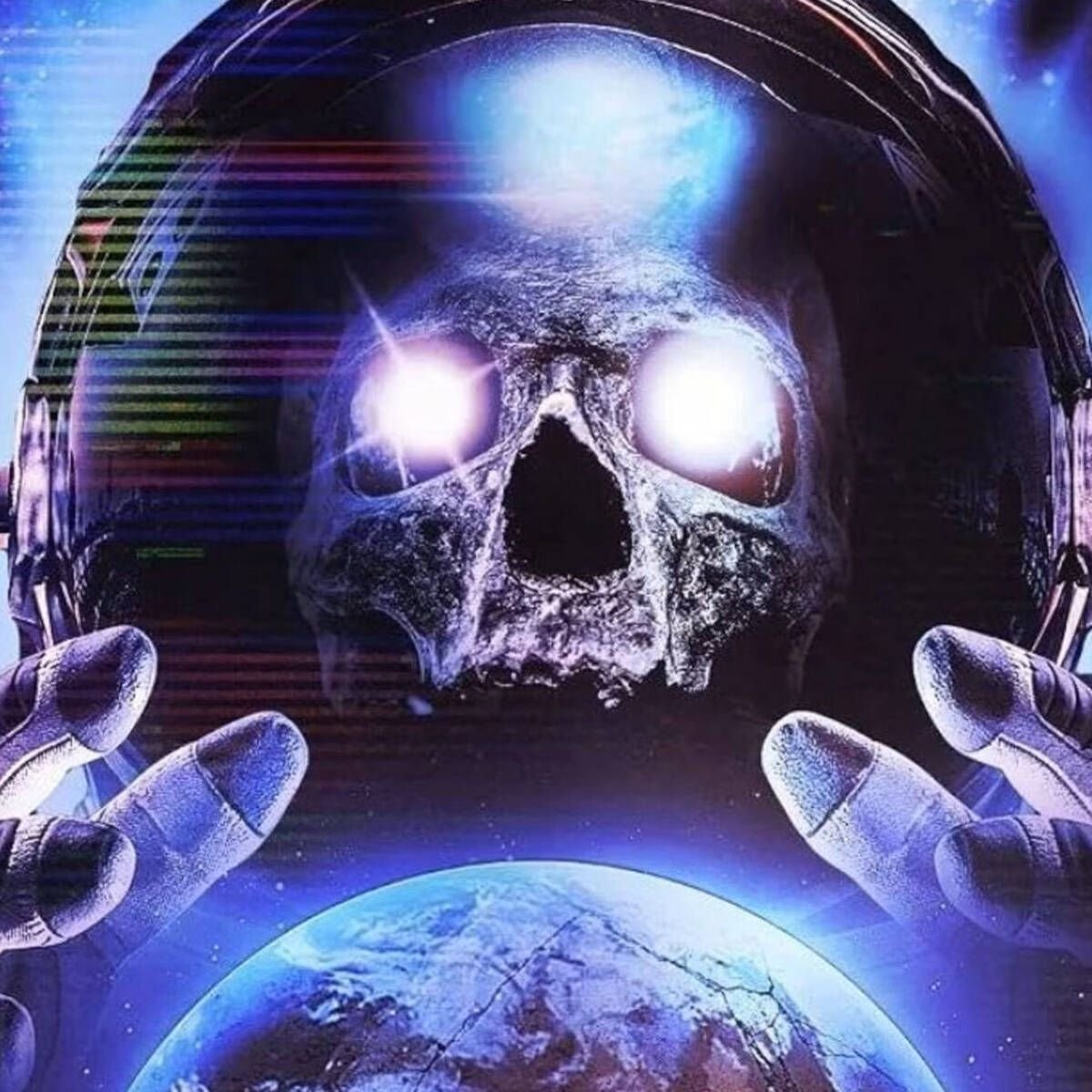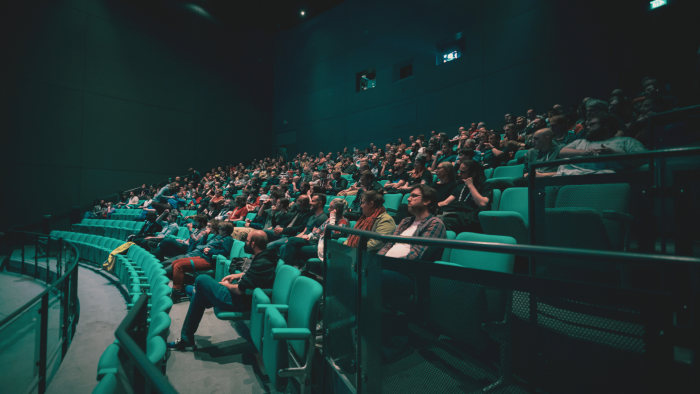Face painting, cotton candy, jugglers, clowns, and popcorn are staples of any carnival worth its big top. You’d bring your kids to that. But if these amusements are provided along with tattoo booths, aerial hoop pole dancing, some of the weirdest cosplay you’ve ever seen, and a film program laden with the best and most bizarre of what genre cinema has to offer, leave the little ones at home. That’s not a carnival. That’s Fantastic Fest.
There is no film festival in North America like Fantastic Fest, because no other has the southern-fried chutzpah necessary to let attendees fly their freak flags for all to see. Austin, Texas, Fantastic Fest’s forever home base, is a deeply strange place. It follows that the country’s strangest celebration of the movies should make its home there. Every year, the festival’s curators wrangle a lineup of past and present titles in various niches under the “genre” umbrella. Action, horror, science fiction, bleak comedy, microbudget productions, independent productions, and, increasingly, studio productions make their way to Austin for an eight-day celebration of storytelling.
Fantastic Fest isn’t just movies, either. There are bona fide fights, like the Fantastic Debates, where two people step into the ring, for real, and duke it out to see who has the better argument for their side of a debatable issue. This year, legendary stuntwoman Zoë Bell kept up the annual tradition of pummeling Tim League, founder of the festival as well as the Alamo Drafthouse theater chain, in a contest over whether CGI effects are better than practical effects. Elsewhere, indie films triumphed over studio productions and Nicolas Cage was officially established as the world’s greatest living actor. (He didn’t settle this score himself, as he wasn’t in attendance. Sorry to disappoint.) The Fantastic Feud, on the other hand, updates the Family Feud formula to suit the festival’s tenor, adding drinks and a 100% increase in raucousness and exuberance to the proceedings.
Fantastic Fest isn’t merely a festival. Think of it as an endurance course to train for over the course of a year instead. Movie nerds are not known for their stamina or durability. To withstand Fantastic Fest, you’ll need both—for the side events, and also for the movies. Here are the five we’ll remember from this year’s edition of the fest:
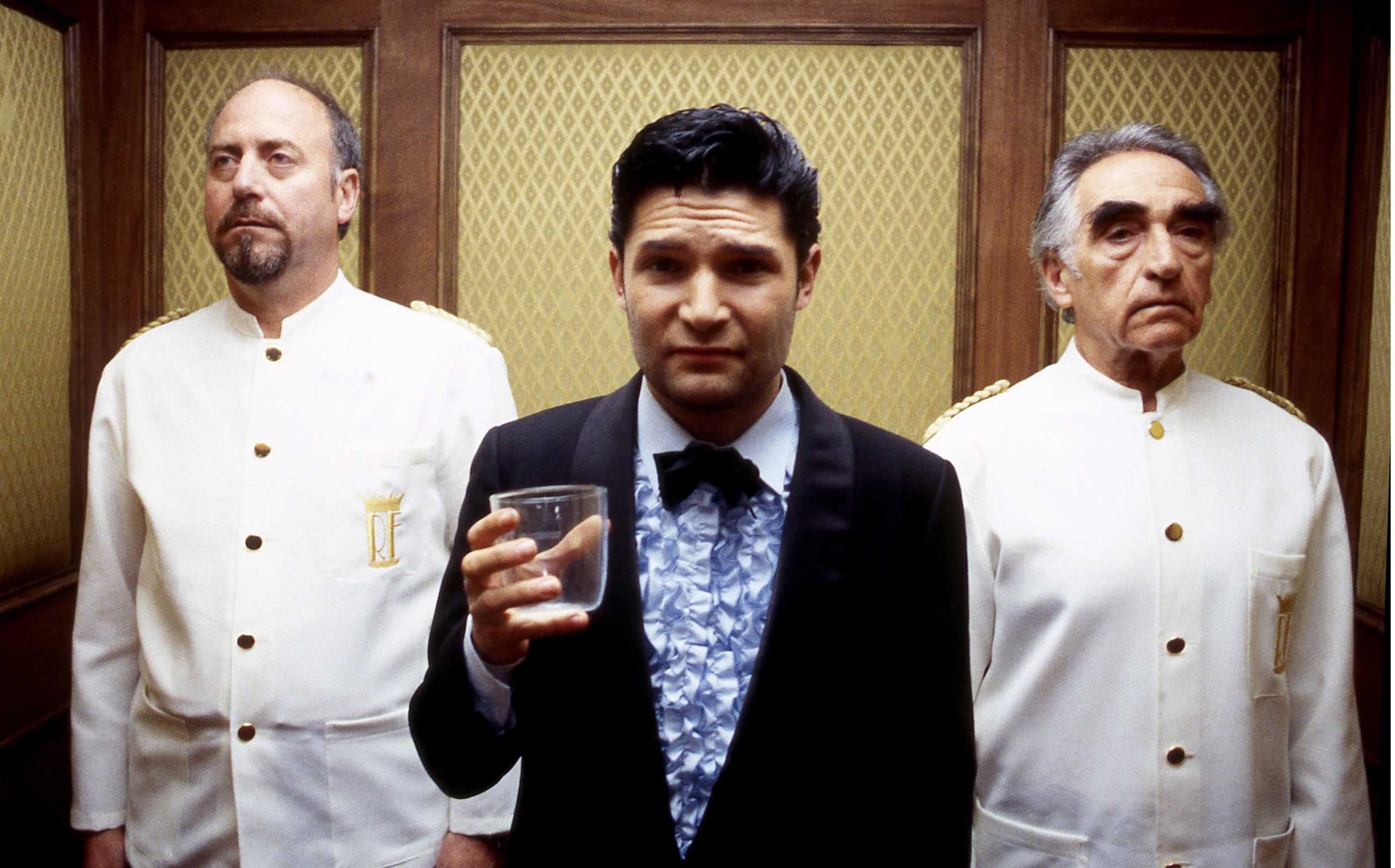
Drafthouse Films
‘The Birthday’
It’s a renaissance period for restorations of classic movies, and recovery of lost ones. Between the two, the latter is the greater cause for celebration. Restoring yesteryear’s masterpieces is nice, but finding something that’s gone unseen by viewers for years? That’s a gift, whether the movie is a stroke of genius or an inexcusable calamity.
Eugenio Mira’s The Birthday hews toward the first of these. Folks who like their comedy black and enjoy a good cringe will love this awkward and insular nightmare, a parable about the terrors of dating a perfect-10 woman as a medium-ugly man. Norman (Corey Feldman) is meeting his girlfriend Alison’s (Erica Prior) parents for the first time in what may be the worst context possible: her father Ron’s (Jack Taylor) birthday. No one expects Norman’s attendance. Worse, he’s such a clumsy ball of jitters that he’s seen as an obstacle to the waiters, the other guests, the guests’ children, and even to Alison.
Worse still, the soiree is a pretext for diabolical unknowns best left that way for the audience’s sake. Suffice to say that as much as it sucks being fashionably late to a party, The Birthday is worth the 20-year wait separating The Birthday from a handful of early 2000s festival runs at Sitges, Fantasia, and Fantastic Fest’s 2004 edition; Feldman is in full-on nebbish mode, demonstrating a remarkable control over his body by playing poor Norman as someone with little control over his. If Mira threw a banana peel in his path, he’d slip on it as if it’s just his nature to make a spectacular fool of himself—which plays nicely with the film’s build-up to mayhem.
The Birthday begins its theatrical rollout this November.
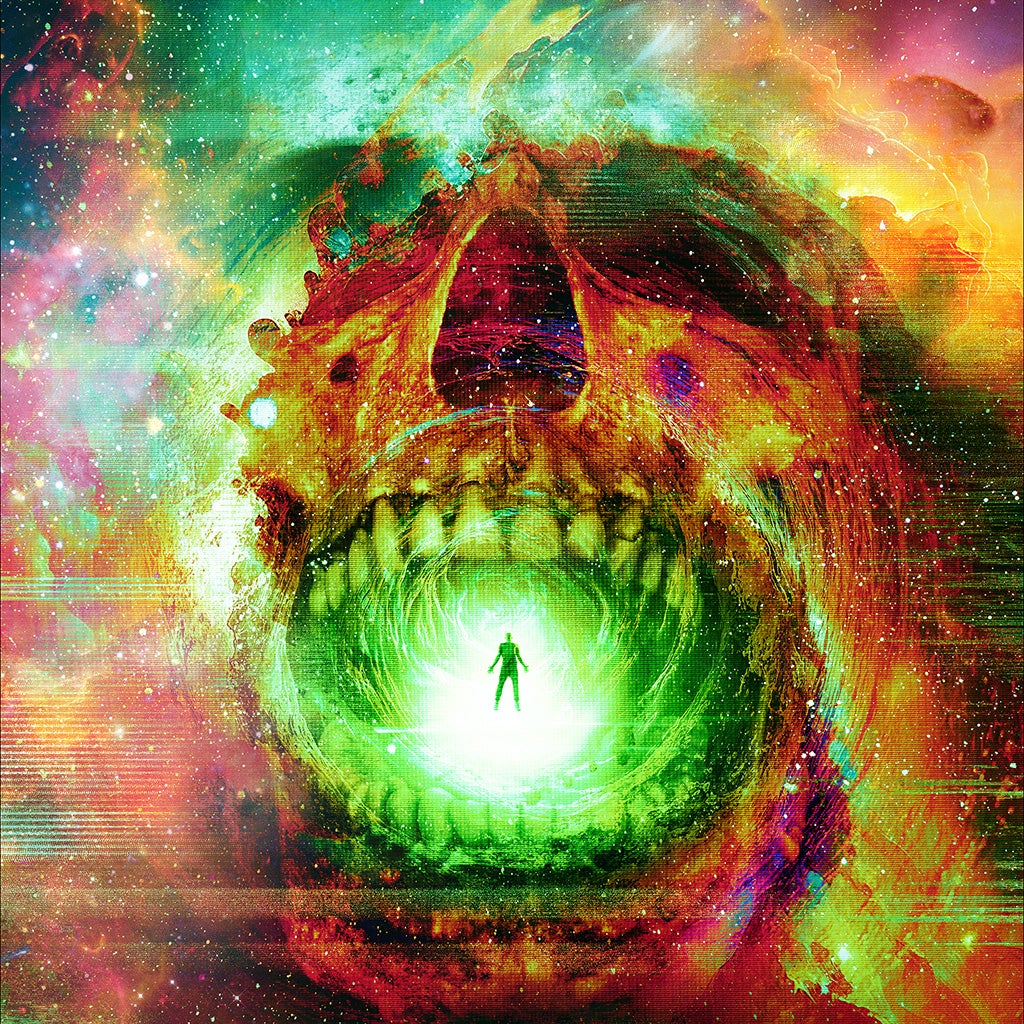
Shudder
‘V/H/S/Beyond’
Odds are that this isn’t the “beyond” the jawsome heroic space ranger Buzz Lightyear had in mind when he coined his famous catchphrase. Then again, he did zip hundreds of years into the future that one time, courtesy of the good ol’ astrophysics phenomenon we call time dilation. Maybe he came back haunted by memories of interstellar travel gone very wrong, of cops going in guns blazing against a nest of body-snatched humans, of cyborgs run amok, and whatever grotesque taxidermy Becky Baxter is practicing in her basement. At the rate Shudder is knocking out new entries in the V/H/S series, it seems at least that Buzz got the “to infinity” part right. What a lucky forecast.
V/H/S/Beyond fully dispenses with the big question posed to every found-footage film: “How are we watching this?” The only good answer is, “Who cares?” Preceding entries in the franchise have at times felt a loose obligation to explain how each of their segments came to be collected together, but even in those cases (V/H/S/94, V/H/S/85), everyone on board knows what kind of party they’re showing up for, and bring their best bite-sized nightmares, with no interest in such trivialities as continuity. That’s the spirit that Jay Cheel, Jordan Downey, Virat Pal, Justin Martinez, Kate Siegel, and the brothers Long—Justin and his younger sibling Christian—bring to V/H/S/Beyond: the drive to push the format’s boundaries far past the last film. Do they ever; V/H/S/Beyond has a “bangers only” sign around its neck, with a pair of contributions ranking up high on the V/H/S all-timer list.
V/H/S/Beyond is available to stream now on Shudder.
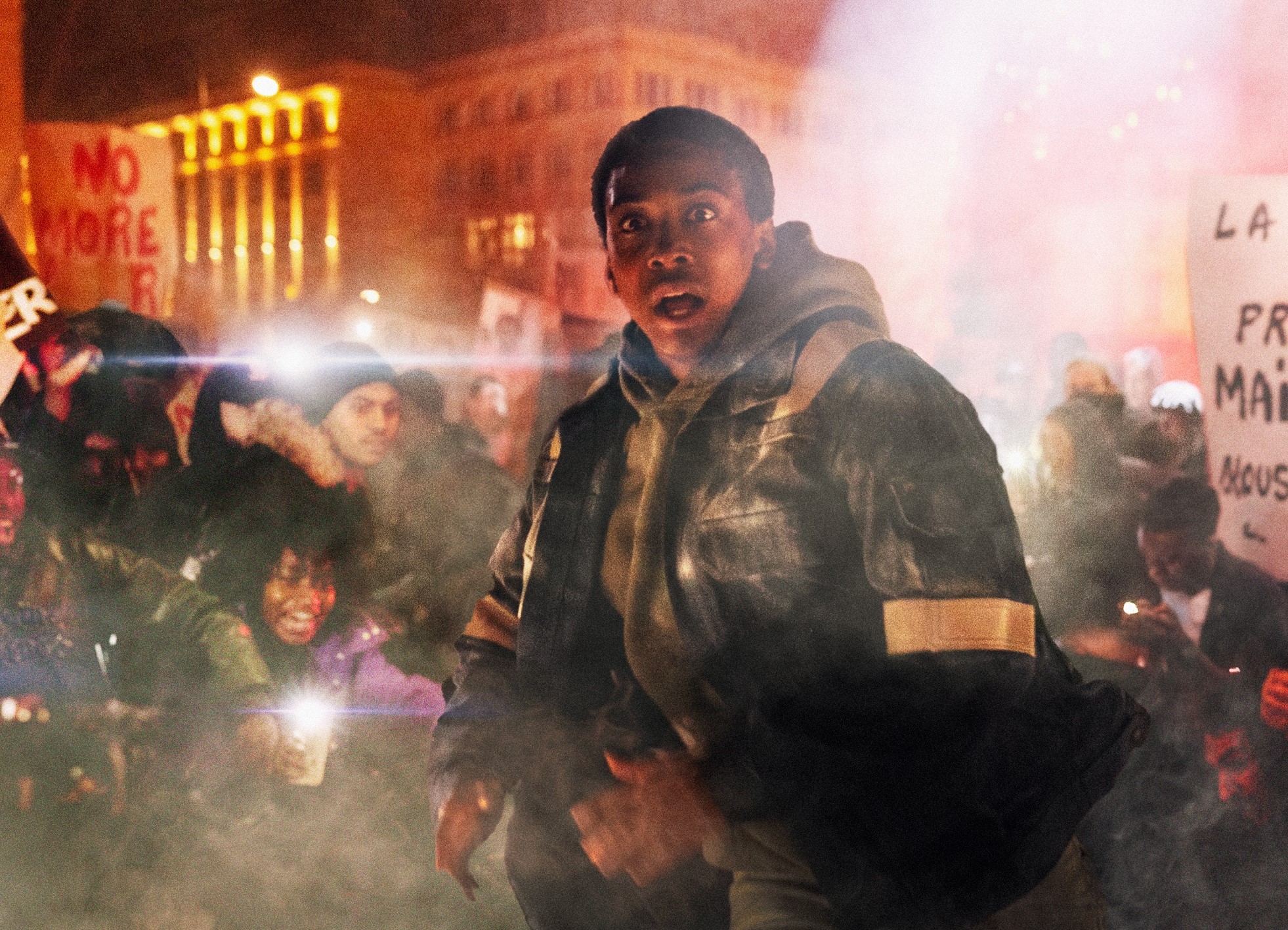
Gaumont
‘Night Call’
A modern “I’m not supposed to be here today!” work thriller, set against a backdrop of social strife with its toes dipped in the realities of gig work. Mady (Jonathan Feltre) takes small jobs as locksmith by evening, and also studies for school, also by evening, in between each of his appointments, he sustains himself with veggie samosas and Petula Clark’s classic ditty, “La Nuit N’en Finit Plus.” As happens to the common man in films like Night Call, Mady helps a client, Claire (Natacha Krieff), get into her apartment. She says she locked herself out, but of course she’s fibbing. When Claire makes off with a bag of money and leaves Mady to face the wrath of the pad’s real tenant, the poor sap finds himself in a race for possession of the bag between Claire and Yannick (a gentlemanly but uncommonly menacing Romain Duris), to whom the money belongs.
There’s a lot going on in Night Call: race disparity, where Mady’s Blackness is exploited by Claire’s whiteness, and where a Black Lives Matter rally is violently disrupted by riot police. Class and labor loom over the proceedings, too, with Yannick, Claire, and Mady each belonging to descending tiers of both. But what’s going on most is director Michiel Blanchart burning through the film’s plot like the Boeing Starliner through fuel. Night Call moves with an escape velocity that reflects Mady’s desperation and also emphasizes the steadfast collective consciousness of Brussels’ BLM protestors; Blanchart responds to that broad scope with tight angles, reducing the city to a contained maze Mady can’t hide in, and his problems into inevitabilities he can’t run away from.
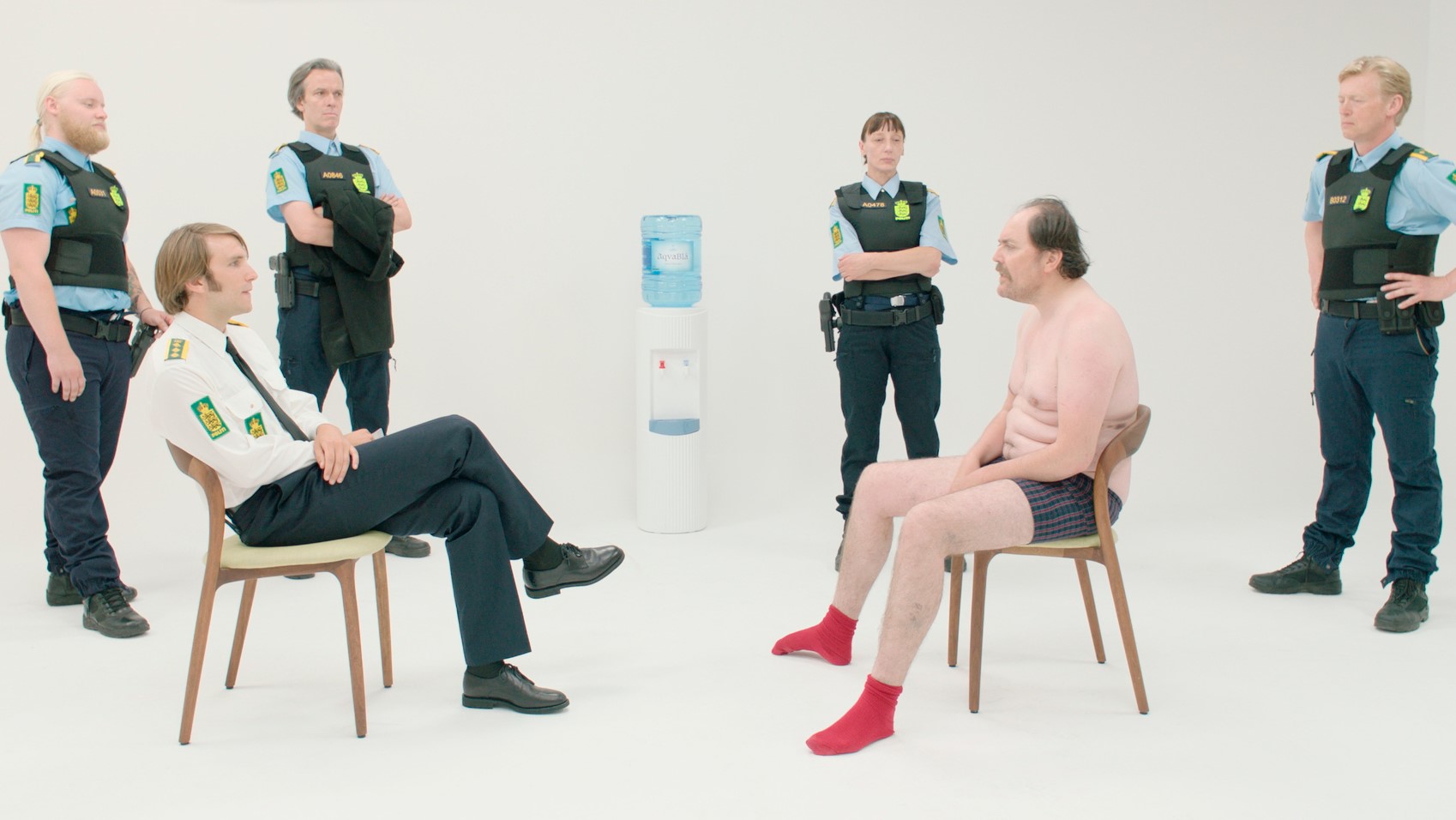
Mamma Roman, Kick’n Rush
‘Plastic Guns’
Let’s run through a list of scary things: Skittering aliens, beast folk, vengeful demons, murder clowns, regular-strength clowns, Nazis, and horror screenwriters. One entity not often explored in genre movies, though, is the irrational denialist—the person who will not admit they’re wrong when presented with proof that they are, in fact. Plastic Guns makes monsters of just such people, convinced by their ego that not only are they right, they’re righteous. Jean-Christophe Meurisse uses our contemporary obsession with “true crime” as his starting point, in a brightly lit sequence where a pair of morticians casually dissect the corpse on their table while kvetching about films and series under that umbrella. Moments later, they’re gushing over the legendary criminal profiler Zavatta (Anthony Paliotti), with a reverence usually reserved for folk figures like John Bundy and rock stars like Lenny Kravitz.
Turns out, Zavatta is actually a doofus. Immediately after the film introduces him, he misidentifies a random passerby, Michel (Gaëtan Peau), as Paul Bernardin (Laurent Stocker), France’s most wanted man, guilty of slaying his wife and three children. What unfolds from this colossal blunder is a commentary on and interrogation of how loosely people defer to actual truth in favor of truths they construct for themselves. Zavatta isn’t the hotshot he’s made out to be. Michel isn’t an infamous family annihilator. Paul isn’t a suave Argentinophile. (Long story.) The “isn’ts” pile up, one after the other, leading into one of the year’s most horrifying third-act resolutions; no amount of gallows humor and highly stylized filmmaking, or country line dancing, can soften its blunt-force impact.
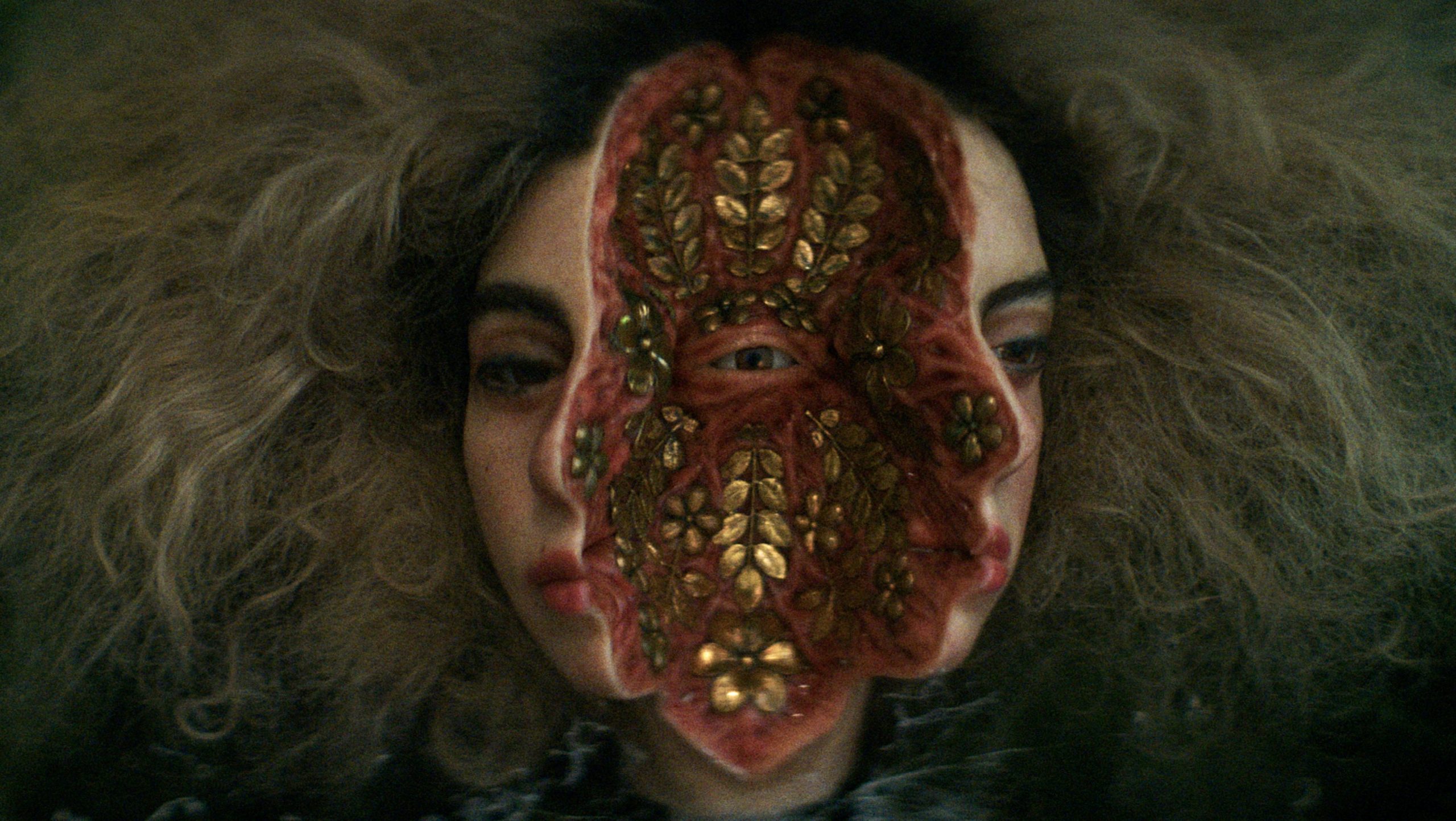
Yellow Veil Pictures
‘She Loved Blossoms More’
If Terry Gilliam made one of his low-tech sci-fi movies using fisheye lenses, focused the plot around mommy issues and interdimensional abnormalities in Lovecraft’s ballpark, and made nauseating odes to John Carpenter’s best work, the end result might look an awful lot like Athenian filmmaker Yannis Veslemes’ She Loved Blossoms More. On the other side of that, this movie is so unique in its texture, its palette, and, frankly, its kinks that it’s hard to say who else could possibly have made it; low light, flattened colors, and a dreamlike haze put Veslemes in the same league as a select few of his contemporaries, like Ann Oren, Bertrand Mandico, and Eddie Alcazar. Forget about real-world logic; She Loved Blossoms More operates on movie logic.
Three brothers—Aris Balis, Julio Katsis, and Panos Papadopolous—bust their humps devising a time machine, with the goal of bringing their mom back from the dead. It’s stressed several times throughout the screenplay that the time machine isn’t quite a time machine, and by the time Veslemes ushers us into the climax, we understand why. Until then, it’s just an ornate MacGuffin that turns pigs into piles of guts and decapitates chickens. Between that and the general squalor the brothers live in, the need to resurrect mom suggests that, perhaps, they’re incapable of taking care of themselves; that’s mom’s job. With that in mind, the movie’s title makes a chilling, depressing kind of sense, as far as anything in the narrative can make sense. She Loved Blossoms More is an inscrutable bit of genre cinema. But the economy Veslemes opts for softens his surrealist vision into a feverish pleasure.

